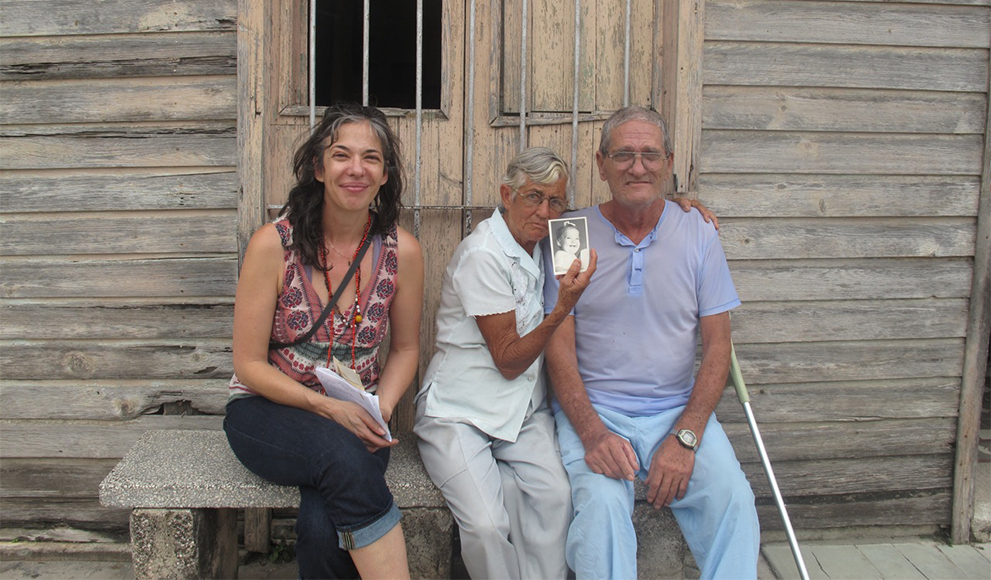Melinda Lopez, Lecturer in Theater Studies, Talks to WBUR, Boston Globe, About Her Cuban Roots

Melinda Lopez, lecturer in theater studies, had the surprise of a lifetime last week. While watching President Obama's historic speech to the Cuban people during his visit there. The playwright—a daughter of Cuban immigrants—was shocked to hear Obama not only mention her name but tell his audience a moving story about a visit she made in 2011 in search of her family's home. After the speech, the Boston Globe and WBUR's Radio Boston both interviewed Lopez about her experience. Perhaps because Lopez' canvas is the sound of language, she said in an email, "I'll never hear the President speak again without remembering how my name sounded in his mouth."
Obama's visit to the Cuban capital was the first president to visit in nearly 90 years and signaled the U.S.'s desire to open relations with the island country.
The President told the story as he talked about "the reconciliation of the Cuban people—the children and grandchildren of revolution, and the children and grandchildren of exile—that is fundamental to Cuba's future."
Of this spirit of reconciliation he said, "You see it in Melinda Lopez, who came to her family's old home. And as she was walking the streets, an elderly woman recognized her as her mother's daughter, and began to cry. She took her into her home and showed her a pile of photos that included Melinda’s baby picture, which her mother had sent 50 years ago. Melinda later said, "So many of us are now getting so much back."
When asked via email if Lopez, a storyteller by trade, thought Obama's use of her story reminded us of the power of stories, she said, "The Presidents speech was a tapestry of stories, because he was focusing on people, not governments. My story was one of many that he had to choose from. So in a way, I think this underscores the importance of throwing your hat in the ring. Take every opportunity to put your voice out there. Because you might be surprised by the amplification it gets."
The Globe story noted the celebrated playwright's work and how it explores her heritage. "Lopez has explored the history of Cuba and the lives of Cuban-Americans in her work. One of her best-known plays, Sonia Flew, revolves around a woman who had been sent from Cuba to America decades earlier by her parents as the Castro dictatorship took hold. [Another play] Becoming Cuba takes place in 1897, as Cuban rebels intensify their insurgency against Spain in a bid for independence."
While Lopez doesn't teach her own plays, she made it clear that she thinks it's important to talk about to her students about how art and identity interact. "[I do talk] about my personal experience as an artist when it's relevant—or as a mom or citizen," she said. "My ethnicity, my gender, my life choices—I put them all into my teaching. I make sure my syllabus reflects gender parity and a diversity of voices—because that's my responsibility as an educator. I know some of the playwrights I teach personally, and add stories when I can."
Though Lopez was extremely moved by Obama's inclusion of her story and the media attention following, she also explained she's by no means the only Cuban American whose has a story that matters. "I would be willing to bet that every single Cuban American who has returned to Cuba has a story like mine."
